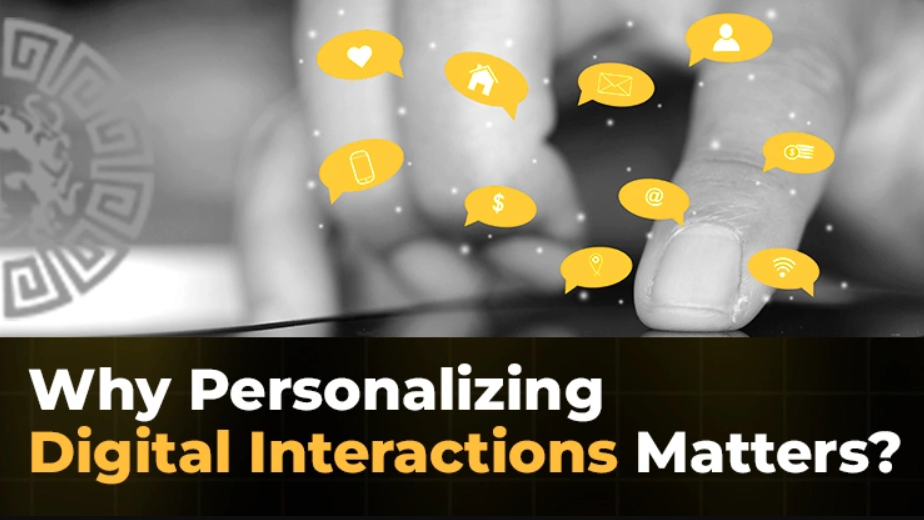Why Personalizing Digital Interactions Matters
Personalization in digital interactions isn’t just a modern marketing trend — it’s a powerful strategy reshaping how businesses connect with their audiences and boost performance. As digital communication channels multiply, consumers now expect brands to deliver experiences that feel tailored, relevant, and human.
The Rise of Personalization in Digital Marketing
Personalization in digital marketing is about delivering messages, offers, and experiences that speak directly to an individual’s interests — not sending generic, one-size-fits-all campaigns.
According to a 2023 report by Epsilon, 80% of consumers are more likely to make a purchase when brands offer personalized experiences. This shows that personalization plays a key role in attracting attention and nurturing customer relationships.
But personalization isn’t just adding a customer’s name to an email. It’s about understanding their needs, behavior, and preferences — and creating meaningful interactions that add value.
Enhancing Customer Engagement
Personalized marketing enhances engagement by making customers feel understood. A Segment study found that 71% of consumers feel frustrated when shopping experiences aren’t personalized.
When businesses tailor their messages to customer interests, engagement improves dramatically. Targeted emails and content campaigns can re-engage previously inactive customers and transform them into loyal advocates.
Improving Customer Retention
While personalization helps attract customers, it’s even more critical for retaining them. Personalized interactions foster deeper connections, which build trust and brand loyalty over time.
Loyal customers are more likely to repurchase, recommend your brand, and ignore competing offers — leading to lower churn and sustainable growth.
Driving Higher Conversion Rates
Delivering the right message to the right person at the right time significantly improves conversion rates. Personalized product recommendations, for example, help users navigate their journey from interest to purchase seamlessly.
People are more inclined to engage with ads and offers that align with their preferences. When content resonates, it prompts meaningful actions — like website visits, sign-ups, or purchases.
Leveraging Data for Personalization
Effective personalization is driven by data. Every interaction — from clicks to watch history — offers valuable insights. Brands can use this information to deliver experiences that feel intuitive and relevant.
A prime example is Netflix, which uses viewing data to suggest content tailored to each user. This data-driven personalization keeps audiences engaged and loyal to the platform.
The Challenges of Personalization
Despite its benefits, personalization comes with challenges. Privacy is a major concern — customers are wary of how their data is used. Businesses must remain transparent and compliant with data protection standards.
Accuracy is another challenge. Poorly implemented personalization can result in irrelevant or mismatched content, damaging trust. Continuous optimization is key to ensuring personalization truly serves the customer’s interests.
Conclusion
In today’s competitive digital landscape, personalization isn’t optional — it’s essential. Thoughtful, one-to-one interactions improve engagement, retention, and conversion while strengthening brand loyalty.
However, businesses must balance personalization with privacy and accuracy to gain the most value from this strategy.
How Vereigen Media Enhances Personalized Digital Interactions
At Vereigen Media, we take a targeted approach to personalization — designing strategies that drive conversions, improve retention, and build long-term customer relationships.
Let’s elevate your digital engagement together. Connect with us today!





Comments